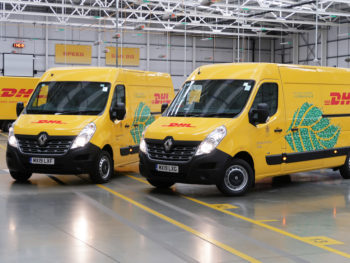Electric cars now have the edge when it comes to image compared to petrol or diesel models but concerns over range limits remain.

Research commissioned this year by Lex Autolease among 2,000 UK adults found more than half (54%) think electric or low-emission cars are “cooler” than big petrol or diesel models.
And almost half (49%) said that a service provider, such as a utility company or delivery service, with an electric or low-emission vehicle fleet would be appealing. That’s more than the number of consumers who said a food company using organic ingredients (35%) would appeal.
Yet, while more than eight in 10 (86%) of respondents have altered their behaviour in the last five years to help reduce their impact on the planet, less than half of those who drive (49%) would currently consider getting an electric vehicle.
That’s despite 61% of people saying they’re aware of the Government’s target for all new cars and vans to be zero-emission by 2040 – and it means more than 17 million drivers need convincing before they’ll start considering electric.
The main barrier to adoption is battery life, with more than half of people (55%) still concerned by range limits according to Lex’s research, with 50% also citing concerns around access to charging facilities.
But the findings also support previous third-party research in highlighting that electric are a viable option for many, with the Lex poll showing 54% of drivers travel fewer than 30 miles per day.
Latest AA breakdown data relating to the Lex Autolease fleet also addresses range concerns. The figures show that in the 12 months to September 2019, 7.6% of fuel-related breakdown jobs for conventionally-fuelled vehicles were logged as ‘run out’ compared to just 0.3% of jobs attended due to charging on EVs.
Ashley Barnett, head of consultancy at Lex Autolease, commented: “The way we live our lives – and the way we travel around – will have to change radically, but a significant number of drivers remain reluctant to get on board.
“With more than 26 million drivers planning to replace their car or van in the next ten years, the opportunity is huge. The Government’s [2050 net zero] target could be in reach if we can educate, encourage and incentivise more people to consider going electric.”

